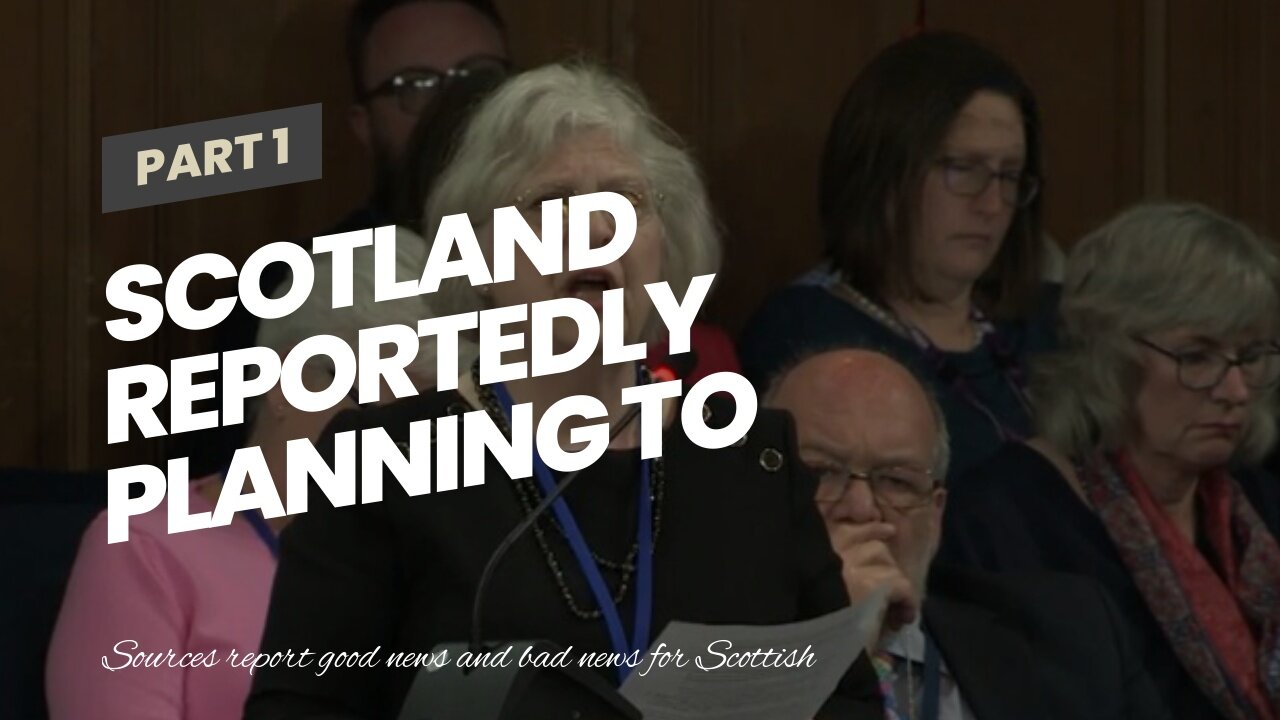Premium Only Content

Scotland reportedly planning to pardon all witches
Scotland reportedly planning to pardon all witches
Sources report good news and bad news for Scottish witches. The good news: they’re likely to receive pardons that will clear them of all charges under the Witchcraft Act. The bad news: they’re already dead.
They’ve been dead for a while now, of course, because even Scotland hasn’t actually prosecuted anyone for witchcraft in almost 300 years. But a lot of them didn’t get the chance to die of old age, because they were tortured, convicted, and executed, and then their corpses were set on fire for good measure.
Still, a pardon would be nice.
Witchcraft has been frowned upon...
Sources report good news and bad news for Scottish witches. The good news: they’re likely to receive pardons that will clear them of all charges under the Witchcraft Act. The bad news: they’re already dead.
They’ve been dead for a while now, of course, because even Scotland hasn’t actually prosecuted anyone for witchcraft in almost 300 years. But a lot of them didn’t get the chance to die of old age, because they were tortured, convicted, and executed, and then their corpses were set on fire for good measure.
Still, a pardon would be nice.
Witchcraft has been frowned upon for some time, but the first statute defining it as a felony in what is now the United Kingdom was apparently England’s Witchcraft Act 1542. That was repealed a few years later, but in 1563, new anti-witch laws were passed in both England and Scotland, and these would stay on the books for centuries.
Here we are concerned with Scotland’s Witchcraft Act 1563, which made it illegal “to use ony maner of Witchcraftis, Sorsarie or Necromancie, nor gif thame selfis furth to have ony craft or knawledge thairof, thairthrow abusand the pepill,” or to ask another to do the same, “under the pane of deid….” See Julian Goodare, “The Scottish Witchcraft Act,” 74 Church History 39 (2005) (quoting Acts of the Parliaments of Scotland (1814–75)). While the auld-tymie spelling is amusing, I strongly encourage you, if you’re not Scottish and maybe even if you are, to read the full text out loud in an absolutely terrible Scottish accent as I did.
It probably wouldn’t sound funny if the person reading it was explaining what you’d been charged with, but it’s kind of funny now.
There weren’t many prosecutions under this Witchcraft Act until about 1590, when witches unfortunately failed to sink the ship in which King James was returning from Denmark. James had left Scotland the year before to bring home his new bride, Anne of Denmark. Witch prosecutions were all the rage in northern Europe at the time, and James heard all about it there. So when his ship was almost sunk by storms on the way back, he suspected … witchcraft! This led to the North Berwick witch trials, which you should not be surprised to hear successfully identified dozens of Scottish witches. (Many of them confessed, which either means witchcraft is real or that people will confess to anything if you subject them to tor— I mean, enhanced interrogation techniques.)
James had so much fun with this that a few years later he wrote a treatise entitled Daemonologie, which he said was prompted by “the fearefull aboundinge at this time in this countrie, of these detestable slaves of the Devil, the Witches or enchanters,” and explained why punishing them was justified. He also included a bonus chapter about the North Berwick trials. (Shakespeare most likely read all this nonsense, which is probably one reason the witches in Macbeth talk about wrecking ships.)
But Scotland was just getting warmed up when it came to burning witches. According to this report inThe Guardian, between 1563 and 1736 Scotland put an astonishing 3,837 people—mostly women—on trial for witchcraft, and two-thirds of them were convicted. This is a lot more than in other European countries or North America, where even in Salem only 19 people—and even less acceptable, two dogs—were executed for witchcraft. Exactly why Scotland was so infested with witches at this time compared to other countries is something I’m going to blame on King James, because that’s true and/or because I’m too lazy to research it.
The point here anyway is that all those convicted witches may get not just a pardon, but an official apology, which would be nice even if it’s a bit late. This has been discussed periodically for years, and several groups have endorsed it, including Witches of Scotland (I’m pretty sure that’s just the name of the campai...
-
 LIVE
LIVE
TimcastIRL
1 hour agoSouth Park Goes FULL CHARLIE KIRK, Latest Episode ROASTS Trump Again | Timcast IRL
23,299 watching -
 LIVE
LIVE
Laura Loomer
43 minutes agoEP135: Champagne Communism: Zohran Mamdani's Ugandan Compound EXPOSED
493 watching -
 LIVE
LIVE
SpartakusLIVE
1 hour agoThe Return of the KING of Content
324 watching -
 10:05
10:05
MattMorseTV
4 hours ago $0.85 earnedHe actually did it...
4.59K8 -
 1:17:18
1:17:18
Glenn Greenwald
1 day agoWhat are CBS News' Billionaire Heirs Doing with Bari Weiss? With Ryan Grim on the Funding Behind It; Europe Capitulates to Trump Again | SYSTEM UPDATE #494
68.4K27 -
 LIVE
LIVE
megimu32
56 minutes agoOTS: Movie Tie-In Games + Remakes: Let’s Play Memory Lane
63 watching -
 DVR
DVR
RiftTV
2 hours agoCNN Calls Black NY Shooter WHITE, Cincinnati FATIGUE | The Rift | Guest: Braeden Sorbo, 2Protects1
11.8K9 -
 LIVE
LIVE
LumpyPotatoX2
3 hours agoKilling Floor 3: Rampage & Chaos - #RumbleGaming
86 watching -
 LIVE
LIVE
BrancoFXDC
3 hours agoPlaying Ranked Warzone - Pursuit of Diamond Rank
64 watching -
 LIVE
LIVE
Omar Elattar
4 hours agoThe Brain Experts: "Your Overthinking Problem Has A Physical Solution & We Can Show You!"
132 watching